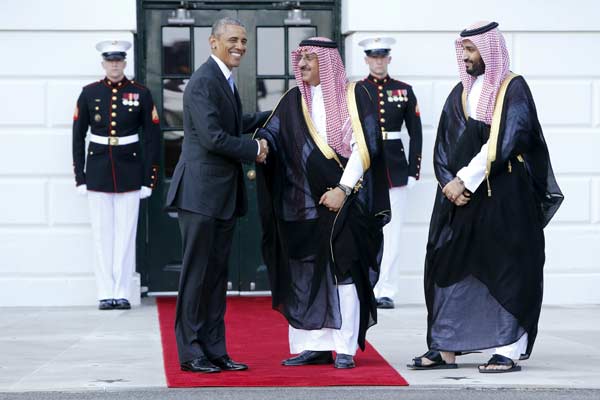Obama meets two Saudi princes after King sent regrets
(Agencies) Updated: 2015-05-14 10:40
 |
|
US President Barack Obama welcomes Saudi Arabia's Crown Prince Mohammed bin Nayef and Deputy Crown Prince Mohammed bin Salman bin Abdulaziz as he plays host to leaders and delegations from the Gulf Cooperation Council countries at the White House in Washington, May 13, 2015. [Photo/Agencies] |
They also discussed efforts to counter Islamic State militants and cooperate to resolve conflicts in Iraq, Syria and Yemen, she said.
White House Josh Earnest said King Salman had not expressed any specific concerns about the agenda at Camp David when he met Secretary of State John Kerry in Riyadh last week, and added it was unprecedented that two high profile Saudi leaders were attending.
"That is an indication that the Saudis certainly take all of this seriously," Earnest told reporters.
The Gulf Cooperation Council includes Saudi Arabia, Kuwait, Qatar, Bahrain, the United Arab Emirates (UAE) and Oman.
US officials have portrayed the summit as a working meeting rather than a symbolic get-together. But the absence of many top Arab leaders, in addition to King Salman, is viewed as a reflection of frustration with Obama's pursuit of the international nuclear deal with Iran and a perceived US failure to support opposition fighters in Syria.
Obama called Saudi Arabia a critical partner in the fight against Islamic State and highlighted his interactions with the two leaders who came in King Salman's place.
Crown Prince bin Nayef said his country attached great importance to the "strategic and historic relationship" with Washington.
Obama did not have private meetings on his public schedule with the leaders from the other countries. They arrived at the White House later on Wednesday evening for a dinner with the president.






